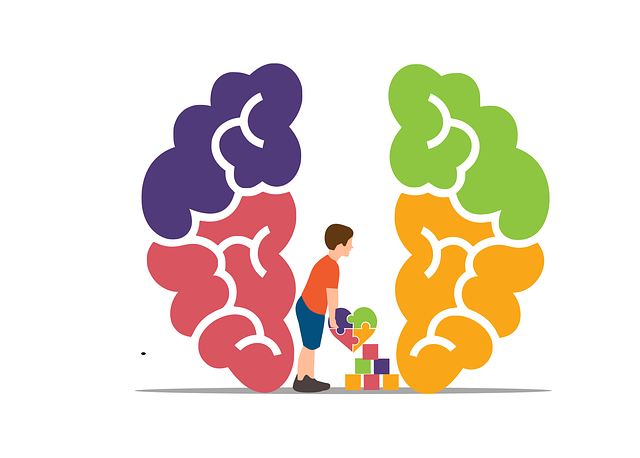Wheat Ridge Hebrew Speaking Therapy leads in addressing mental health needs within multilingual communities by offering culturally sensitive services in Hebrew, focusing on emotional healing and self-care. They advocate for policy improvements through community engagement, partnerships, and data-driven assessment to bridge cultural gaps in mental healthcare access. Their strategic approach includes initiatives like public awareness campaigns, mindfulness practices, and measuring success with quantitative and qualitative metrics, ensuring policies cater to diverse populations' needs.
Mental health policy analysis and advocacy are vital components in fostering robust community well-being. This article explores a comprehensive approach to understanding and shaping mental health policies, highlighting the unique contributions of organizations like Wheat Ridge Hebrew Speaking Therapy. Through a deep dive into policy analysis methods, we examine how assessing community mental health needs guides effective advocacy strategies. Additionally, we discuss successful measurement techniques to evaluate the profound impact of mental health policies, offering insights for both practitioners and policymakers alike.
- Understanding Mental Health Policy: A Foundation for Advocacy
- The Role of Wheat Ridge Hebrew Speaking Therapy in Policy Analysis
- Identifying Gaps and Needs: Community Mental Health Assessment
- Strategies for Effective Mental Health Policy Advocacy
- Measuring Success: Evaluating the Impact of Mental Health Policies
Understanding Mental Health Policy: A Foundation for Advocacy

Mental health policies are a cornerstone in fostering well-being and supporting individuals facing various challenges. Understanding these policies is essential for advocacy efforts, especially when aiming to improve access to quality care. At Wheat Ridge Hebrew Speaking Therapy, we recognize that policy analysis plays a pivotal role in shaping public mental health services. By examining existing legislation and guidelines, we can identify gaps and areas of improvement, ensuring that everyone receives the compassionate care they deserve.
Advocacy begins with comprehending the intricate web of regulations affecting mental healthcare. This includes initiatives such as Public Awareness Campaigns Development to reduce stigma and promote early intervention, and Compassion Cultivation Practices within therapeutic settings. Encouraging Self-Care Practices is another vital aspect, empowering individuals to take charge of their mental health. Through these efforts, we strive to create a more inclusive and supportive environment, leaving no one behind in the pursuit of optimal psychological well-being.
The Role of Wheat Ridge Hebrew Speaking Therapy in Policy Analysis

Wheat Ridge Hebrew Speaking Therapy plays a pivotal role in mental health policy analysis and advocacy by offering unique insights into the specific needs of multilingual communities. This therapy centre recognizes that language is more than a communication tool; it’s a window into cultural identities and personal experiences, which significantly impact mental well-being. By providing services in multiple languages, including Hebrew, they bridge the gap between diverse populations and mental health support systems.
Their expertise lies in facilitating Emotional Healing Processes tailored to individual needs while also addressing the pervasive issue of Mental Illness Stigma Reduction Efforts. Through dynamic therapeutic approaches, Wheat Ridge encourages clients to develop robust Self-Care Routine Development for Better Mental Health practices that respect their cultural backgrounds. This holistic approach not only enhances access to care but also fosters more inclusive and effective mental health policies.
Identifying Gaps and Needs: Community Mental Health Assessment

In many communities, there’s a dearth of comprehensive mental health services tailored to meet diverse cultural needs. This is particularly evident in areas with significant Hebrew-speaking populations, such as Wheat Ridge. A thorough Community Mental Health Assessment is crucial to identifying specific gaps and crafting targeted solutions. By gathering data on existing resources, prevalence of mental health issues within the community, and cultural barriers to care, policymakers can better allocate resources and design effective programs.
For instance, assessment may reveal a need for accessible Mindfulness Meditation practices tailored to Hebrew-speaking individuals, or highlight the lack of Crisis Intervention Guidance in local schools and workplaces. These insights would then inform the development of Mental Health Education Programs designed with cultural sensitivity, ensuring that everyone, regardless of background, has access to the support they need.
Strategies for Effective Mental Health Policy Advocacy

Mental health policy advocacy requires a strategic approach to effect meaningful change. One effective strategy is Wheat Ridge Hebrew Speaking Therapy‘s emphasis on community engagement, where advocates build alliances with local organizations, policymakers, and community leaders. By fostering partnerships, they can create a collective voice that amplifies the need for comprehensive mental healthcare services. This collaborative effort ensures that policies align with the diverse needs of the community, including ethnic and cultural considerations.
Additionally, incorporating practices like Mindfulness Meditation and Burnout Prevention Strategies for Healthcare Providers can strengthen advocacy efforts. These techniques promote resilience among advocates and ensure they remain dedicated to long-term policy changes. By prioritizing self-care and stress management, healthcare providers can sustain their involvement in mental health advocacy, ultimately contributing to more effective policy solutions that address the root causes of mental illness.
Measuring Success: Evaluating the Impact of Mental Health Policies

Measuring Success is a critical aspect of mental health policy analysis and advocacy. To evaluate the impact of policies designed to improve mental well-being, various quantitative and qualitative metrics should be employed. For instance, tracking reductions in mental health service wait times, increased access to culturally sensitive therapies like those offered by Wheat Ridge Hebrew Speaking Therapy, and enhanced client satisfaction rates can provide concrete indicators of policy effectiveness.
Moreover, examining the reach and engagement of initiatives such as Stress Management Workshops Organization programs and Community Outreach Program Implementation efforts can offer valuable insights. Mental Health Awareness campaigns, for example, can be gauged through social media analytics, event attendance numbers, and post-intervention surveys to determine their influence on community mental health literacy and support systems.
Mental health policy analysis and advocacy are vital components in ensuring accessible and effective care. By understanding the complexities of mental health policies, as highlighted by the contributions of organizations like Wheat Ridge Hebrew Speaking Therapy, we can identify gaps and advocate for evidence-based solutions. This comprehensive approach, involving community assessment and strategic lobbying, empowers us to create a more supportive environment for mental well-being. Through successful policy implementation and evaluation, we can measure progress and continue to refine our strategies, ultimately enhancing the lives of those seeking mental health services.














